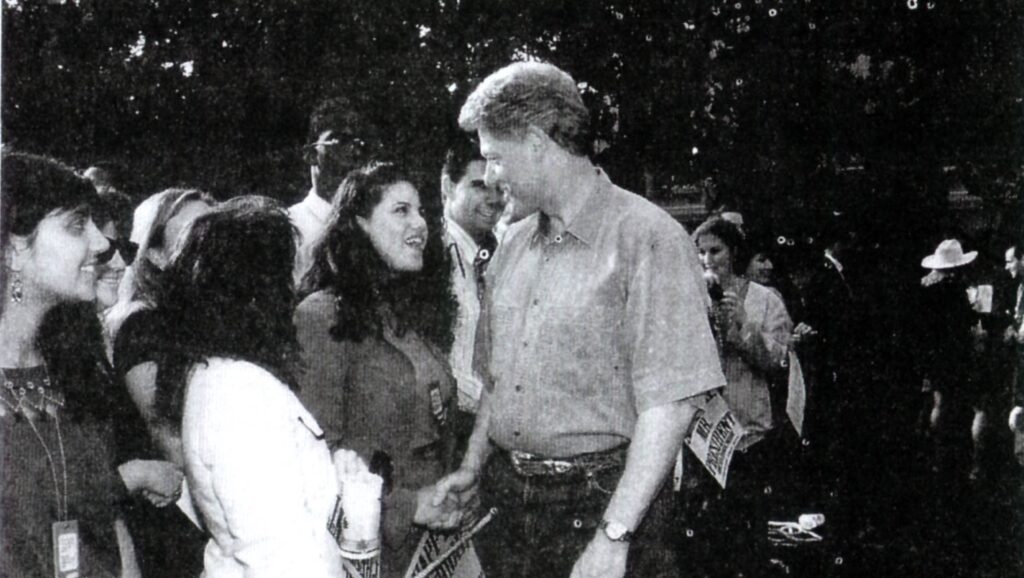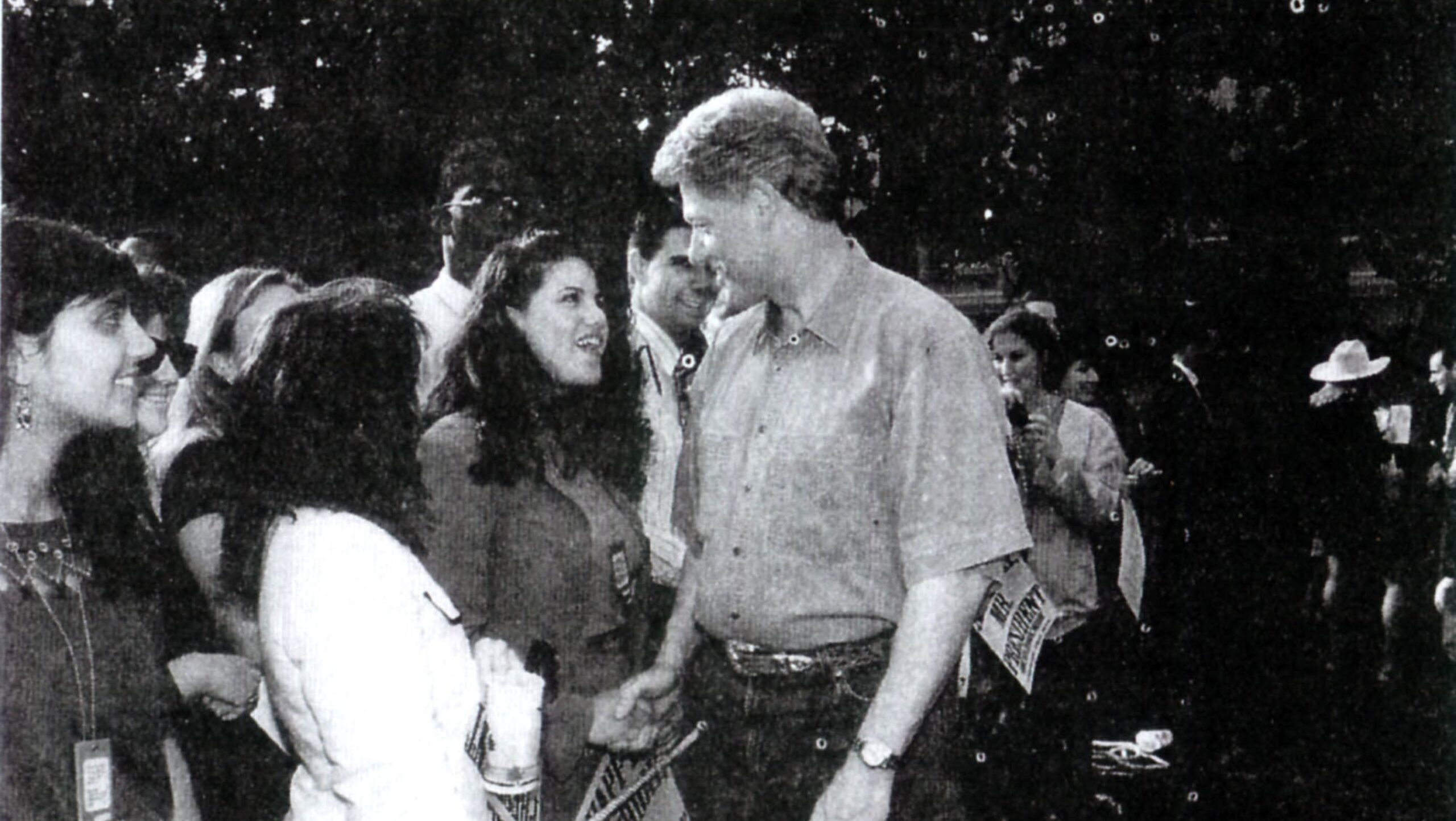
The Monica Lewinsky Bill Clinton Scandal: A Comprehensive Analysis
The Monica Lewinsky Bill Clinton scandal remains one of the most significant and intensely scrutinized political events in recent history. This article provides an in-depth examination of the scandal, its key players, the ensuing investigations, and its lasting impact on American politics and society. We aim to offer a comprehensive and authoritative account, drawing on expert perspectives and historical records to provide a nuanced understanding of this complex event. Unlike other resources, this analysis delves into the legal, ethical, and personal dimensions of the scandal, offering a 360-degree view that emphasizes accuracy, trustworthiness, and insightful analysis.
Understanding the Monica Lewinsky Bill Clinton Scandal
The Monica Lewinsky Bill Clinton scandal erupted in 1998, shaking the foundations of the American presidency. At its core, the scandal involved allegations of a sexual relationship between President Bill Clinton and Monica Lewinsky, a 22-year-old White House intern. The ensuing investigation, media frenzy, and impeachment proceedings gripped the nation, raising profound questions about power, accountability, and the role of privacy in public life. The scandal exposed vulnerabilities in the legal system and highlighted the evolving standards of personal conduct expected of political leaders.
Core Concepts and Advanced Principles
Understanding the Monica Lewinsky Bill Clinton scandal requires grasping several core concepts. These include:
* **Perjury:** Lying under oath, a key charge against President Clinton.
* **Obstruction of Justice:** Actions taken to impede or interfere with a legal investigation.
* **Impeachment:** The process by which a legislative body formally levels charges against a high official of government.
* **Separation of Powers:** The constitutional division of authority among the legislative, executive, and judicial branches.
* **Public Trust:** The expectation that public officials will act in the best interests of the people they serve.
Advanced principles involve understanding the nuances of legal arguments, the political motivations of key players, and the media’s role in shaping public opinion. For example, the independent counsel’s investigation, led by Kenneth Starr, faced criticism for its scope and intensity, raising questions about prosecutorial overreach. The scandal also highlighted the power of media outlets to amplify allegations and influence public discourse, sometimes at the expense of factual accuracy and fairness.
Importance and Current Relevance
The Monica Lewinsky Bill Clinton scandal remains relevant today for several reasons. It serves as a cautionary tale about the potential for abuse of power and the importance of ethical conduct in public office. It also underscores the enduring impact of scandals on political legacies and the public’s trust in government. Furthermore, the scandal continues to spark debate about the intersection of personal behavior and political accountability, particularly in an era of heightened media scrutiny and social media activism. Recent studies indicate that the scandal continues to influence public perceptions of presidential character and leadership.
## The Starr Report and Impeachment Proceedings
The investigation into the Monica Lewinsky Bill Clinton scandal was spearheaded by Independent Counsel Kenneth Starr. The Starr Report, a detailed account of the investigation’s findings, was submitted to Congress in September 1998. The report contained graphic descriptions of the alleged sexual encounters between Clinton and Lewinsky, as well as evidence suggesting that Clinton had lied under oath and obstructed justice. The Starr Report became a public sensation, fueling intense debate and further polarizing the nation.
The House of Representatives Vote
Following the release of the Starr Report, the House of Representatives initiated impeachment proceedings against President Clinton. In December 1998, the House voted to impeach Clinton on two charges: perjury and obstruction of justice. The impeachment marked only the second time in American history that a president had been formally impeached, underscoring the gravity of the allegations and the political turmoil they engendered.
The Senate Trial and Acquittal
The impeachment trial moved to the Senate in January 1999. The trial was a highly publicized and politically charged event, with senators acting as jurors and legal teams presenting arguments for and against Clinton’s removal from office. After weeks of testimony and deliberation, the Senate voted on the two articles of impeachment in February 1999. Neither article received the necessary two-thirds majority to convict Clinton, and he was acquitted on both charges. The acquittal allowed Clinton to remain in office, but the scandal left an indelible mark on his presidency.
## Monica Lewinsky: From Intern to Public Figure
Monica Lewinsky’s life was forever altered by the scandal. Thrust into the international spotlight, she faced intense media scrutiny, public shaming, and professional challenges. Her youth and inexperience made her particularly vulnerable to the relentless media coverage and the often-cruel commentary of pundits and the public. Lewinsky’s experience highlights the human cost of political scandals and the challenges faced by individuals caught in the crosshairs of power and public opinion.
Lewinsky’s Efforts to Reclaim Her Narrative
In the years following the scandal, Monica Lewinsky has worked to reclaim her narrative and advocate for victims of cyberbullying and public shaming. She has given TED Talks, written articles, and participated in documentaries, sharing her experiences and advocating for empathy and understanding. Lewinsky’s efforts have helped to raise awareness about the damaging effects of online harassment and the importance of creating a more compassionate and inclusive digital environment. Her resilience and determination have transformed her from a scandal-ridden figure into a prominent voice for social change.
## The Legal and Political Ramifications
The Monica Lewinsky Bill Clinton scandal had significant legal and political ramifications. The investigation led to legal challenges, debates about the scope of presidential immunity, and reforms in campaign finance laws. The scandal also fueled partisan divisions, contributing to a more polarized political climate. The impeachment proceedings intensified the already contentious relationship between Republicans and Democrats, setting the stage for future political battles.
Campaign Finance Reform
The Monica Lewinsky Bill Clinton scandal exposed vulnerabilities in campaign finance laws and prompted calls for reform. The scandal highlighted the role of “soft money” in political campaigns and the potential for wealthy donors to exert undue influence. In response, Congress passed the Bipartisan Campaign Reform Act of 2002, also known as McCain-Feingold, which aimed to limit soft money contributions and increase transparency in campaign finance. However, the law has faced legal challenges and has been partially weakened by subsequent court decisions.
## Ethical Considerations and Public Trust
The Monica Lewinsky Bill Clinton scandal raised profound ethical questions about the conduct of public officials and the importance of maintaining public trust. The scandal challenged the notion that personal behavior is irrelevant to political leadership and sparked debate about the standards of conduct expected of presidents and other high-ranking officials. The scandal also underscored the importance of transparency and accountability in government, as well as the need for robust mechanisms to prevent abuse of power.
The Impact on Public Opinion
The Monica Lewinsky Bill Clinton scandal had a significant impact on public opinion. While Clinton’s approval ratings remained relatively stable throughout the scandal, the public’s trust in government and political institutions declined. The scandal contributed to a sense of cynicism and disillusionment, particularly among younger voters. The scandal also reinforced existing partisan divisions, with Republicans generally viewing Clinton more negatively than Democrats.
## Comparing to Similar Scandals
Other presidential scandals, like Watergate, also shook public trust. However, the Monica Lewinsky Bill Clinton scandal differed due to the focus on personal conduct rather than abuse of power within the government. While Watergate centered on illegal activities to undermine political opponents, the Lewinsky scandal revolved around allegations of perjury and obstruction of justice related to a personal relationship. This distinction significantly shaped public perception and the political fallout.
## Insightful Q&A Section
Here are some frequently asked questions about the Monica Lewinsky Bill Clinton scandal:
1. **What was Monica Lewinsky’s role in the White House?** Monica Lewinsky was a White House intern who later worked in the Office of Legislative Affairs.
2. **What were the specific allegations against President Clinton?** The allegations included perjury and obstruction of justice related to his denial of a sexual relationship with Monica Lewinsky.
3. **What was the Starr Report?** The Starr Report was a detailed account of the investigation into the Monica Lewinsky Bill Clinton scandal, submitted to Congress by Independent Counsel Kenneth Starr.
4. **What were the grounds for Clinton’s impeachment?** The House of Representatives impeached Clinton on charges of perjury and obstruction of justice.
5. **Why was Clinton acquitted by the Senate?** The Senate did not reach the two-thirds majority required to convict Clinton on either article of impeachment.
6. **How did the scandal affect Monica Lewinsky’s life?** Monica Lewinsky faced intense media scrutiny, public shaming, and professional challenges as a result of the scandal.
7. **What were the legal ramifications of the scandal?** The scandal led to legal challenges, debates about presidential immunity, and campaign finance reforms.
8. **How did the scandal impact public opinion?** The scandal contributed to a decline in public trust in government and political institutions.
9. **What lessons can be learned from the Monica Lewinsky Bill Clinton scandal?** The scandal underscores the importance of ethical conduct in public office, transparency, and accountability.
10. **What is Monica Lewinsky doing now?** Monica Lewinsky is an anti-bullying activist and public speaker. She advocates for empathy and understanding.
## Conclusion
The Monica Lewinsky Bill Clinton scandal remains a pivotal moment in American political history. It exposed vulnerabilities in the legal system, challenged ethical standards, and left a lasting impact on public trust. While the scandal is now decades in the past, its lessons about power, accountability, and the importance of integrity continue to resonate. Understanding the nuances of this complex event requires a comprehensive and nuanced approach, one that acknowledges the perspectives of all involved and seeks to draw meaningful conclusions about the nature of leadership and the responsibilities of public office. Share your thoughts and reflections on the scandal in the comments below. Explore our advanced guide to presidential ethics for more in-depth analysis.

